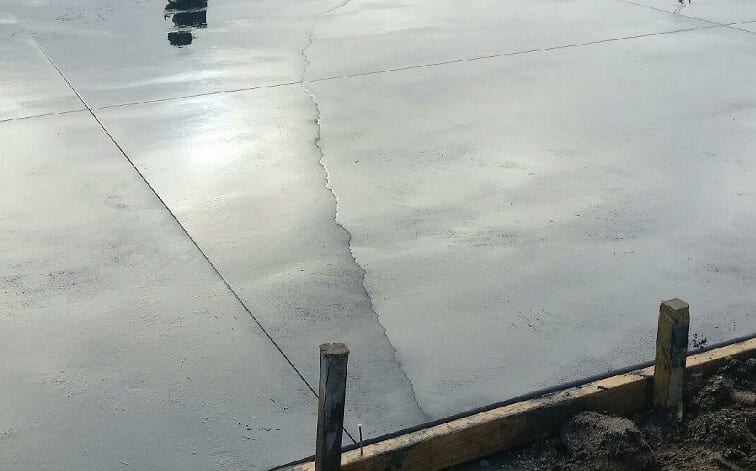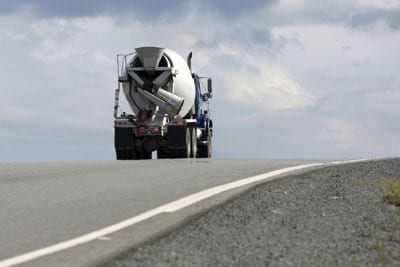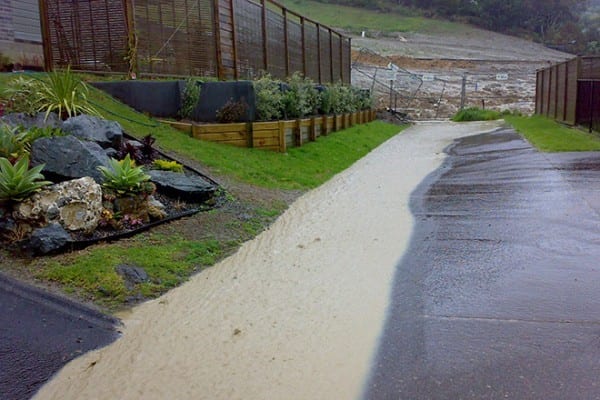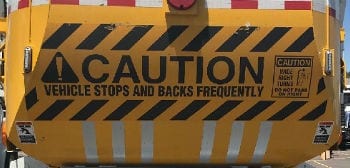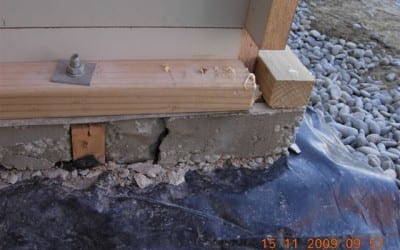With thousands of construction-related clients Builtin has seen more than our fair share of claims from concrete contractors. Here are a few examples to help explain why liability insurance is so important for them.
Public/General Liability
What it does: covers your liability for accidental damage to someone else’s property, including associated legal costs. Cover includes liability for:
- loss of use of property that isn’t physically damaged
- subsequent damage or losses caused by the original event (eg. revenue lost by a business that has to stop trading due to the damage you’ve caused)
- damage caused by faulty workmanship (if included in your policy)
Claim 1 – Delivering Concrete
What Happened
ABC Concrete was delivering concrete to a construction site. The chute on the truck was released causing it to swing out over the road. Unfortunately, Jane was driving to work at the time the chute swung onto the road. She swerved and the chute hit her vehicle denting the passenger side. She made a claim with her vehicle insurer.
Policy Response
The damage to the vehicle was covered by ABC Concrete’s public liability insurance, as this was property damage to third party property. ABC Concrete made a claim with their insurer, who arranged with Jane’s insurer for the cost of repairs to be paid.
Claim 2 – Pumping Concrete
What Happened
Solid Concrete was pumping concrete for a new driveway. A block formed in the hose, but this was not noticed by the insured. The hose then burst due to the pressure build up and concrete was sprayed over the neighbouring home and car.
Policy Response
The concrete sprayed onto the neighbour’s property was considered third party property damage. The cost of cleaning the neighbouring home and car was covered by the Solid Concrete’s public liability policy. Solid Concrete arranged for a cleaning company to attend the neighbour’s home the following day and the invoice was sent to the insurer for payment.
Claim 3 – Placing Concrete
What Happened
Steve’s Concrete Placing was laying concrete for a residential driveway and patio. The concrete cracked in a number of places and the homeowner blamed Steve’s Concrete Placing for this.
Policy Response
The cracks were considered third party property damage and because the insured’s policy did not exclude damage to property being worked upon the insurer accepted the claim. They paid for the concrete to be ripped up and replaced.
Note: this response is not universal from all insurers and will depend on their specific wording or policy interpretation. Some insurers will apply a “rip and tear” exclusion, so there is no cover if the insured is liable for digging out and/or replacing concrete.
Statutory Liability
What it does: covers your liability for fines and penalties under legislation and the associated legal costs. Health & safety fines can’t be insured, but if prosecuted the policy will cover legal defence costs and any reparations awarded.
Claim 1 – Concrete Run Off Contamination
What Happened
ABC Concrete had to wash out a blocked chute in one of their trucks before the concrete went off. The contaminated water made its way into a stormwater drain and the Council prosecuted ABC Concrete for breaching the Resource Management Act. A $10,000 fine was imposed.
Policy Response
The fine and ABC Concrete’s legal bills were paid by their insurer.
Claim 2 – Employee Crushed
What Happened
Solid Concrete was pumping concrete for a warehouse floor. An employee was crushed when the truck was being repositioned, severely injuring his leg, which required multiple surgeries. Auckland District Court found the defendant guilty of breaching their obligations under the Health & Safety At Work Act. It imposed a fine of $150,000 and $35,000 reparations for emotional harm. Solid Concrete’s legal defence costs exceeded $80,000.
Policy Response
Careful management of a WorkSafe investigation from its very early stages can help a company avoid prosecution. In this case the insurer covered Solid Concrete’s legal defence costs and the amount of reparations.
The examples in this article are real claims. However, every individual claim is unique and policy wordings and interpretations from different insurers vary. Consequently, the outcome to a claim cannot be assumed from these examples.

